As Elephanta Island finally gets 24/7 electricity, its 1,200 residents recount the decades spent in darkness
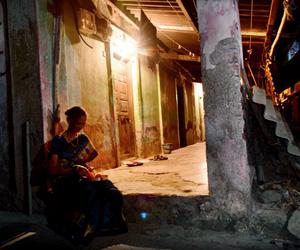
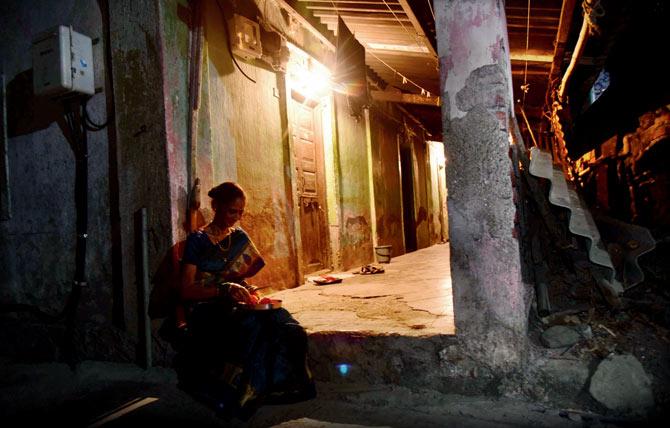
Maya Kathor Koli outside her home last week. Until February 21, the island would get three hours of electricity supply from a diesel generator. Pic/Suresh Karkera
"Twenty years ago, when my marriage was fixed, I asked my mother where my husband lived. Her reply 'Elephanta' left me disturbed," says Laxmi Manoj Sevekar, 44, a resident of Gharapuri, better known as Elephanta Island. Just 10 km from Mumbai, the island — the site of the UNESCO-deemed World Heritage site, Elephanta Caves — didn't have full-time electricity supply, making life here quite unbearable.
ADVERTISEMENT
Sevekar, who grew up in Bhaval village in Ulwe, says the initial days after marriage were difficult. "There were no street lights and power was available for just three hours the day [from 7 pm to 10 pm]. Every election there"d be assurances of electricity, but nothing would change. Seventy years after Independence, we have finally got our basic human right."
On February 22, the residents of Elephanta Island got access to 24-hour electricity supply. Seven-kilometre long underwater cables have been laid from Jawaharlal Nehru Port Trust in a 15-month-long project that cost Rs 25 crore. The 22 KV cable has four lines, including one exclusive standby line, to ensure high-quality power to the islanders which should be sufficient to take care of future requirements. The expense for the project was borne by the Mumbai Metropolitan Region Development Authority (MMRDA) and Maharashtra State Electricity Distribution Co. Ltd (MSEDCL).
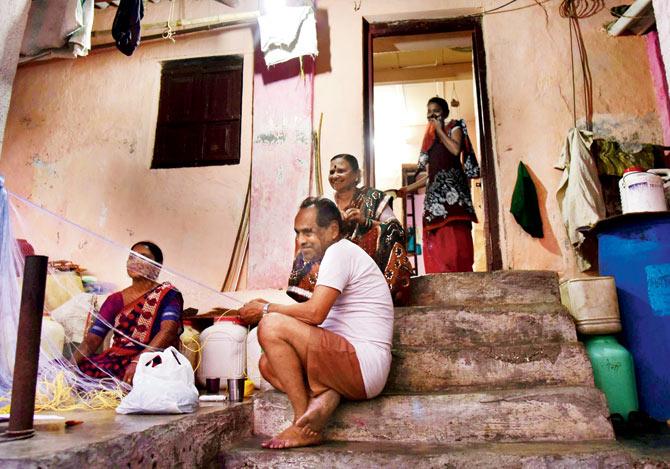
From the 1980s until now, the residents of Gharapuri, i.e. Elephanta Island, have lived with only three hours of electricity supply — 7 pm to 10pm. On February 22 this year, they finally started receiving 24-hour electricity supply. Pics/Suresh Karkera
The dark night
Located 10 km to the east of Mumbai and two kilometres west of the Jawaharlal Nehru Port, Elephanta has caves that contain Hindu and Buddhist iconography that date back to the 5th century. Deemed a UNESCO World Heritage site in 1987, the island, today, receives a footfall of more than 1,000 tourists (national and international) every day. The island's population is 1,200.
Comprising three tiny villages — Shet bunder, Mora bunder and Raj bunder —Gharapuri's residents mostly belong to the Koli and Agri communities. "I was born here and this is my family's fourth generation on the island," says Baliram Thakur, recently elected Sarpanch of Gharapuri. "Our grandparents would farm and fish for a living. The only other source of income was tourism, but earlier on it the island wasn't very popular because of its distance from Mumbai. With development and better modes of transport, tourist footfall has increased and now we are almost completely dependent on tourism for income," adds the 53-year-old.
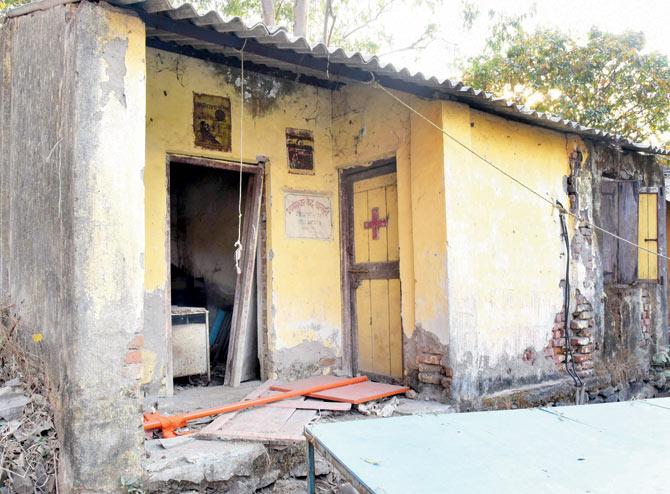
The Primary Health Centre has been shut for the last 14 years
Baliram Bhoir, 66, runs Mahesh Hotel just near the jetty. He recalls, "When we were kids, the nights were dreadful. Women would have to finish cooking before dark and our days would end around 8 pm. Our daily routine was totally dependent on sunlight. We used to carry flambeaus at night if we needed to step out. Every election, politicians would talk about electricity, but none delivered it. We would watch Uran and other neighbouring islands light up but didn't know when our time would come."
The fight for light
In the 1980s, the Maharashtra Tourism Development Corporation (MTDC) along with the power ministry, brought generators to the island. Prabhakar Shinde, an electrician by profession, has been working at this generator house for the last 25 years. "When I was posted here, diesel based electricity was provided to the homes and my task was to reach the generator house at around 6.45 pm and start generators so that villagers would get electricity from 7 pm to 10 pm. That was a luxury for us," he recalls. "After many years, in the late 90s, there were talks of laying electricity cables.
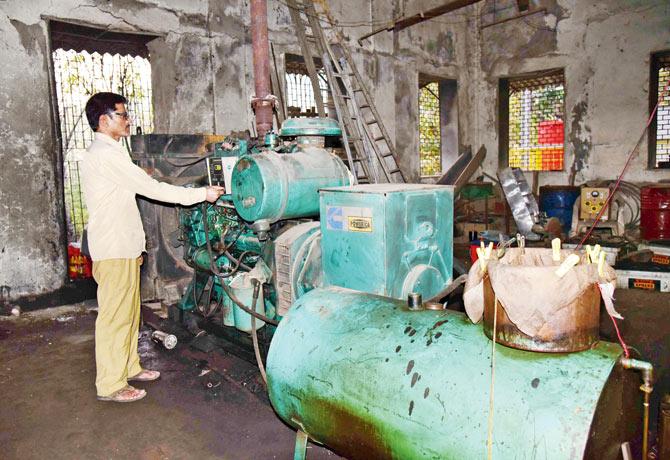
Prabhakar Shinde, who runs the MTDC-run power generating, says not all houses have got the permanent electricity connection yet
The Shiv Sena-BJP government had prepared the project at a cost of Rs 5 crore but nothing came of it. We have to spend our nights in darkness. It's horrible in the monsoon as, due to the rough seas, supply of diesel would also be cut off."
Inverters came to the island in the late '90s, but with the diesel generated electricity being limited, their durability is also limited to seven hours. While cellphones can be charged, there's no network as there's no cellphone tower. Basic household machines such as mixers, refrigerators, fans have to run on inverters and many households don't have them.
"In 1999, we saw the mammoth Jawaharlal Nehru Port project coming up in front of our eyes. There was development just across the shore, hardly a couple of kilometres from us, but once again, we were neglected. Every villager would see JNPT shining with light, big cargo ships arriving-departing, but there was no difference in our life," says Harishchandra Mhantre, a souvenir stall owner and resident. He adds that around that time, residents, having given up hope of a decent life on the island, started migrating to Uran to seek jobs and better lives.
Years of neglect
The decades without electricity have left the island's infrastructure crumbling. Vacated for the last 14 years, the Primary Health Centre is a dilapidated structure now. There's not even a GP on the island. For anything as basic as the flu or even emergency treatment, residents have to go to Uran, 30 minutes on a boat ride. As the ferry service operates between 6.30 am and 5.15 pm, anything outside this time frame requires a private boat ride. Even education on the island is limited. After Std X, the children head to Uran to study. "When my kids would come home after a day at school, there'd be no way they could study at night, so I asked both my sons to live in Uran with our relative," says Sevekar. "Many residents have left home as they don't want their kids to suffer." Due to this migration, there are no students at the island's school between Std I and III.
Women are hopeful that there'll be more to their lives now than house work. "Men leave the house for work and meet many people during the day. But with no electricity, women in every house have had to immerse themselves in completing household chores before sunset. So, many of us don't have any knowledge of what's happening in the outside world," says Maya Kathor Koli, a fishing net weaver.
Also read: After 70 years of Independence, Elephanta Caves gets electricity
"With electricity we can watch news channels now. In fact, the very first news we saw was of our island getting electricity," she giggles.
 Subscribe today by clicking the link and stay updated with the latest news!" Click here!
Subscribe today by clicking the link and stay updated with the latest news!" Click here!







